In February of 1919, less than five months after the end of World War I, songwriters Walter Donaldson, Joe Young, and Sam M. Lewis published a song about soldiers returning home from the war. “How Ya Gonna Keep ‘Em Down on the Farm (After They’ve Seen Paree?)” is framed as a conversation between parents awaiting the return of their soldier sons. The mother believes her sons will be content to return to their farm, while the father, Reuben, knows that farm life won’t be enough for the boys after having traveled around the world. The song as originally recorded was a somewhat jaunty novelty tune, and Judy Garland sang it that way in the film For Me and My Gal. I first heard a more melancholy version of it by Andrew Bird a few years back.
With the end of the ‘farm story’ act of Jeff Lemire’s and Dean Ormston’s Black Hammer having arrived last Wednesday, that song has been on my mind a lot. It’s not just because of the core conceit of the series, about a team of superheroes trapped on a mysterious farm in the town of Rockwood, trying alternately to adjust to being there and to find their way home. There’s a thematic similarity between the song and the series, too—they’re both about the inherent nature of people to grow restless in their surroundings, and the desire for something more. For the returning soldier in the song, the question is whether the comfort of a simple life on the farm will be supplanted by the culture of the wider world they experienced while at war; for the heroes of Black Hammer, the argument is whether they should try to make things work on the farm, or if they should continue to investigate how to get back to where they came from.
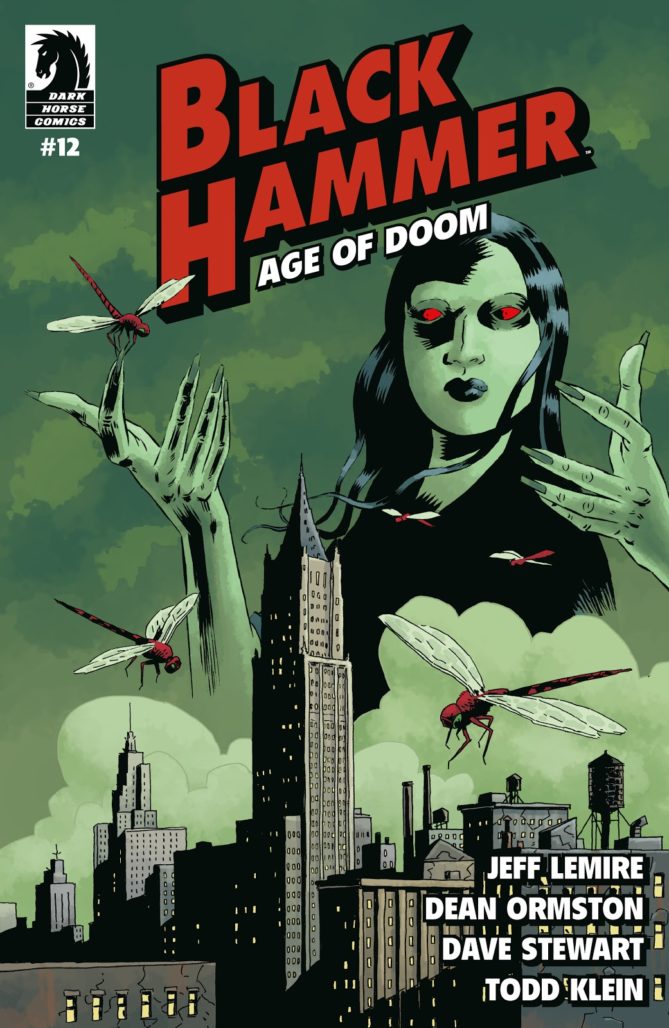
Last week’s finale, Black Hammer: Age of Doom #12, answers that question once and for all. With the help of Lucy Weber, daughter of the original Black Hammer and the latest to wield the cosmic weapon, all the mysteries around the farm and what brought Abraham Slam, Barbalien, Golden Gail, Colonel Weird, Talky-Walky, and Madame Dragonfly there have been solved. With those answers, though, came unexpected consequences for the heroes of Spiral City. Essentially, escape from the farm and a return home also meant the impending return of Anti-God, the reality-destroying entity the heroes had previously defeated immediately prior to being transported to the farm. Faced with the calamity Anti-God’s return would bring, the heroes made the only choice they could: to return to the farm and leave Spiral City behind in order to save the universe.
The sacrifice these heroes make is particularly powerful considering where they were mentally and emotionally in the beginning. The series opened with its lead characters having been trapped on the farm for 10 years, and in that time some had adjusted to being there better than others. A return to the farm would be less of a sacrifice for Abe Slamkowski (aka Abraham Slam), who seemed pretty content there, having formed relationships with the residents of Rockwood, including a romantic one. Others, like Mark Markz, the Martian shapeshifter known to Spiral City as Barbalien, were still struggling to make a go of life on the farm, though not for lack of trying. On the opposite end, Gail Gibbons, as a grown woman trapped in the body of nine-year-old Golden Gail, despised life on the farm. Of all of the characters in Black Hammer, Gail’s sacrifice at the end of the series may have felt the most poignant given just how much she had longed to get home and return to her normal adult self.
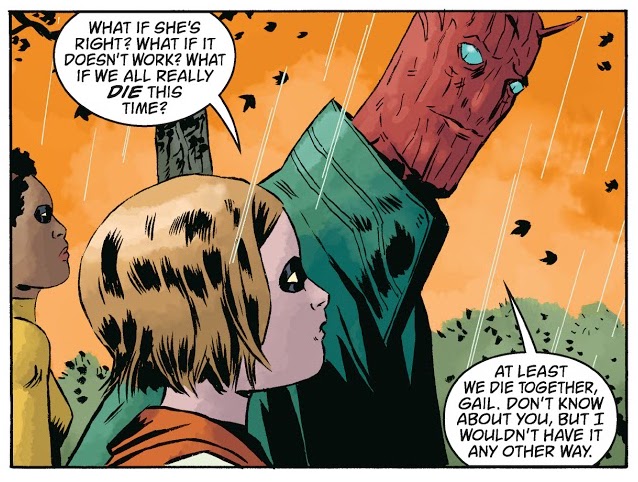
Black Hammer has been lauded as a deconstruction of superhero comics, with lead characters who are thinly-veiled homages to classic heroes like Martian Manhunter, Adam Strange, and the original Captain Marvel. At its heart, though, it has always felt like a love-letter to those comics, and that’s nowhere more evident than in Age of Doom #12. The characters may be more flawed than their inspirations, but if the finale shows readers nothing else about them, it’s that they’re every bit the heroes as those who preceded them.
It seems likely we’ll see these characters again in some form or another—the Black Hammer universe has grown through spin-off miniseries and one-shots to include a vast array of characters from different time periods. Plus, the recent Legion of Super-Heroes-inspired The Quantum Age miniseries revealed future fates for Black Hammer mainstays Talky-Walky, Colonel Weird, and Madame Dragonfly, so we know at least those three don’t stay on the farm forever. In the primary form in which readers have been following them since 2016, though, the story of the heroes of Spiral City and their mysterious farm has reached a definite conclusion.
Which brings me back to that song. The return of the soldiers from war is met by their parents not with celebration, but with concern over what comes next. What choice will they make, and how will it affect their lives going forward? The heroes of Spiral faced the same dilemma, and in the end, the only way to keep them on the farm was for it to be their choice. Black Hammer was a critical success from the start, and Lemire and Ormston could have had these characters never learn why they were on that farm, never escape from it, never be faced with a conclusion to their story; instead, they chose to end the story on their own terms, and in the way they’d always planned. Wherever the Black Hammer franchise goes now that this part of the story is over, the way its ending has played out, in my opinion, is worth celebrating.


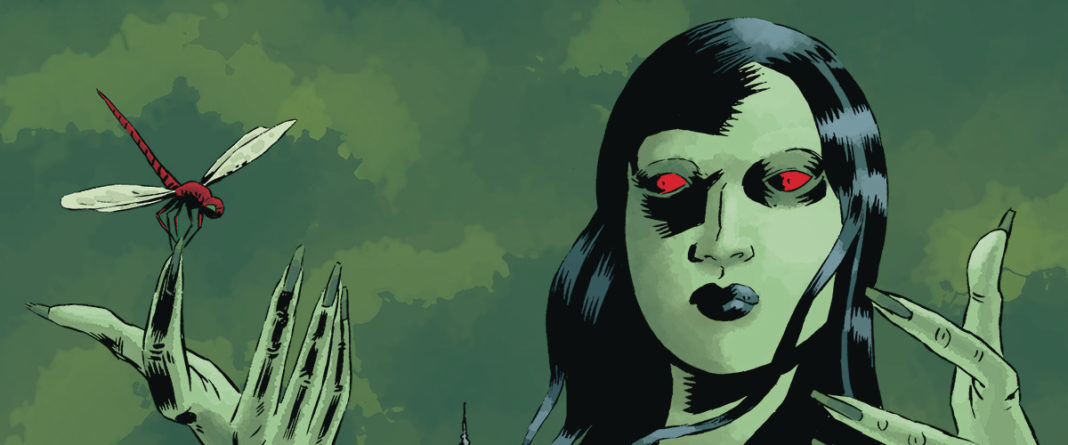
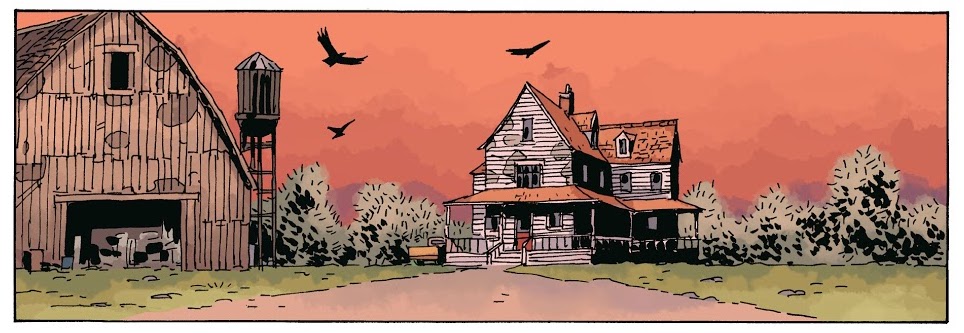
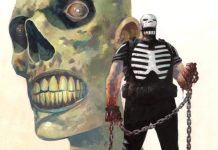
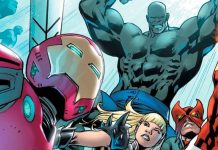




Interesting…
Your article highlights, through your kind and touching words, a key element in this concluding narrative… the heroes sacrifice, the heroes choice to return to the farm… and, in those closing pages, I was delighted to see Abe, Gail and Mark find happiness, They truly deserve that. Having Sherlock join them was another one of Jeff’s acts of creative genius.
But there’s another part of this end, one I experienced as far less satisfying…
Having the heroes forget seems sad, and even tragic, to me. I love these heroes, but not remembering as a way to be happy seems like a work around the effort we all have to make as humans… process trauma and let our scars make us more than who we were before we received them…. I can’t get over the feeling that Abe, Gail, and Mark are not who they were meant to be with many of their memories now missing.
I have a hunch Jeff will make them whole one day. I think I’ll find that ending an even happier one.
Comments are closed.